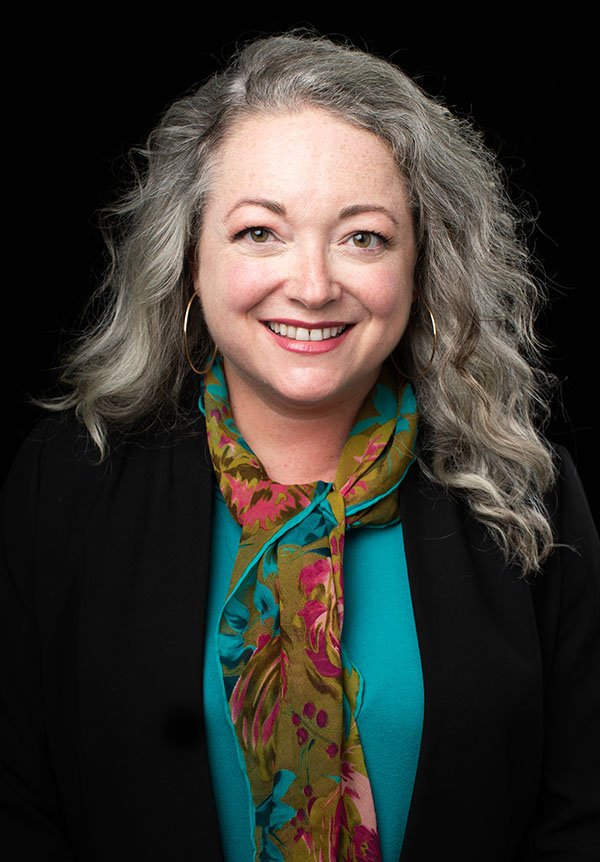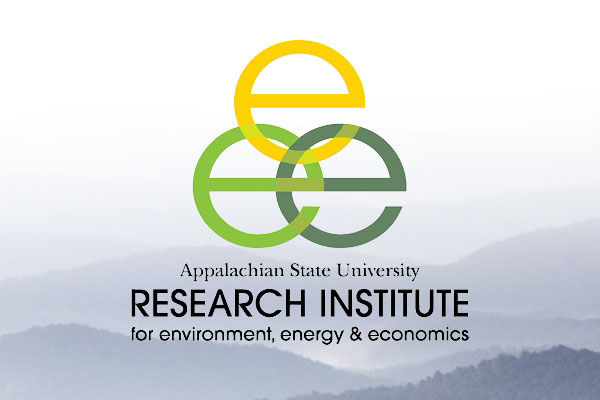BOONE, N.C. — Phosphorus is an essential element and a critical nutrient in global food systems, where it is used in fertilizers to improve crop yields. But “the current phosphorus cycle is linear and broken on both ends,” said Dr. Christine Ogilvie Hendren, director of Appalachian State University’s Research Institute for Environment, Energy, and Economics.
The agricultural industry relies on mined, non-renewable phosphates that create toxic waste. And inefficiencies in phosphorus management result in nutrient runoff to surface waters, which can cause harmful algal blooms and poor water quality — threatening drinking water supplies and aquatic life.
App State is among nine institutions across the U.S. coordinating on research to reduce dependence on mined phosphates and to reduce the amount of phosphorus that leaches into soil and water, the National Science Foundation announced Sept. 9. The NSF Science and Technologies for Phosphorus Sustainability Center (STEPS), to be headquartered at N.C. State, will accelerate the development of sustainable technologies and practices to control, recover, reuse and manage phosphorus, the foundation said.
The STEPS center aims to facilitate a 25% reduction in human dependence on mined phosphates and a 25% reduction in phosphorus losses to soils and water resources within 25 years, leading to enhanced resilience of food systems and reduced environmental damage.
The center is funded by an initial five-year, $25 million grant that is renewable for an additional five years. Hendren is one of five co-principal investigators for the project, which will position the STEPS team as the global leader in the phosphorus sustainability movement.
STEPS will be an interdisciplinary center, with contributions across the physical, life, social and economic sciences, and Hendren will serve as the project’s integration director. Hendren’s work is centered in applying evidence-based approaches to help teams span boundaries — disciplinary, sectoral, cultural and geographic — to integrate and co-create knowledge to address complex global challenges.
“Appalachian has a rich culture of collaboration and collegial problem-solving between departments here. It’s a special place for that,” said Hendren, also a professor of geological and environmental sciences. “We’re well positioned culturally to collaborate in a trans-disciplinary way.”
The research team will likely include three or four additional App State faculty and students from across campus, Hendren said, potentially from such disciplines as geology and environmental sciences, environmental economics, supply chain management, sustainable development or anthropology.
“STEPS integrates experts to tackle every part of this problem — from engineering materials at the atomic level, to field level knowledge of agricultural systems, to economists and social scientists that help understand the adoption of new approaches — to help us recover, reuse and create a sustainable, circular economy of this critical nutrient,” Hendren said.
Additional project goals include:
- Fostering progress toward more than 50% participation by members of underrepresented minoritized groups, including more than 50% pre-baccalaureate participation to further broaden and develop the STEM pipeline.
- Engaging the public and stakeholders such as farmers. It’s important to work together with farmers — many of whom depend on fertilizer practices for their yields — to help develop trust in new technologies, Hendren noted.
App State has a foundational commitment to sustainability, is widely recognized for excellence in undergraduate research, and fosters agricultural, rural and workforce connections and relationships with underserved populations.
In addition to App State and N.C. State, STEPS partner institutions include Arizona State University, the Joint School of Nanoscience and Engineering at North Carolina Agricultural and Technical State University and the University of North Carolina at Greensboro, the University of Florida’s Institute of Food and Agricultural Sciences, Marquette University, RTI International and the University of Illinois.
Mick Kulikowski contributed to this story.
What do you think?
Share your feedback on this story.
About the Research Institute for Environment, Energy and Economics
Since 2008, Appalachian State University’s Research Institute for Environment, Energy and Economics (RIEEE) has fostered interdisciplinary research on the environment, energy and economics, especially the areas in which these subjects intersect. The institute serves as an umbrella organization for three research centers: the Appalachian Energy Center, Center for Economic Research and Policy Analysis, and Southern Appalachian Environmental Research and Education Center. Additionally, the institute manages and supports App State’s student-led solar vehicle team, Team Sunergy — an exemplary model of the integrative and experiential student learning, leadership and innovation opportunities the institute seeks to foster at App State. Learn more at https://rieee.appstate.edu.
About Appalachian State University
As a premier public institution, Appalachian State University prepares students to lead purposeful lives. App State is one of 17 campuses in the University of North Carolina System, with a national reputation for innovative teaching and opening access to a high-quality, cost-effective education. The university enrolls more than 21,000 students, has a low student-to-faculty ratio and offers more than 150 undergraduate and 80 graduate majors at its Boone and Hickory campuses and through App State Online. Learn more at https://www.appstate.edu.





![How NCInnovation Is Rethinking Economic Development in North Carolina [faculty featured]](/_images/_posts/2026/02/rethinking-economic-development-600x400.jpg)








